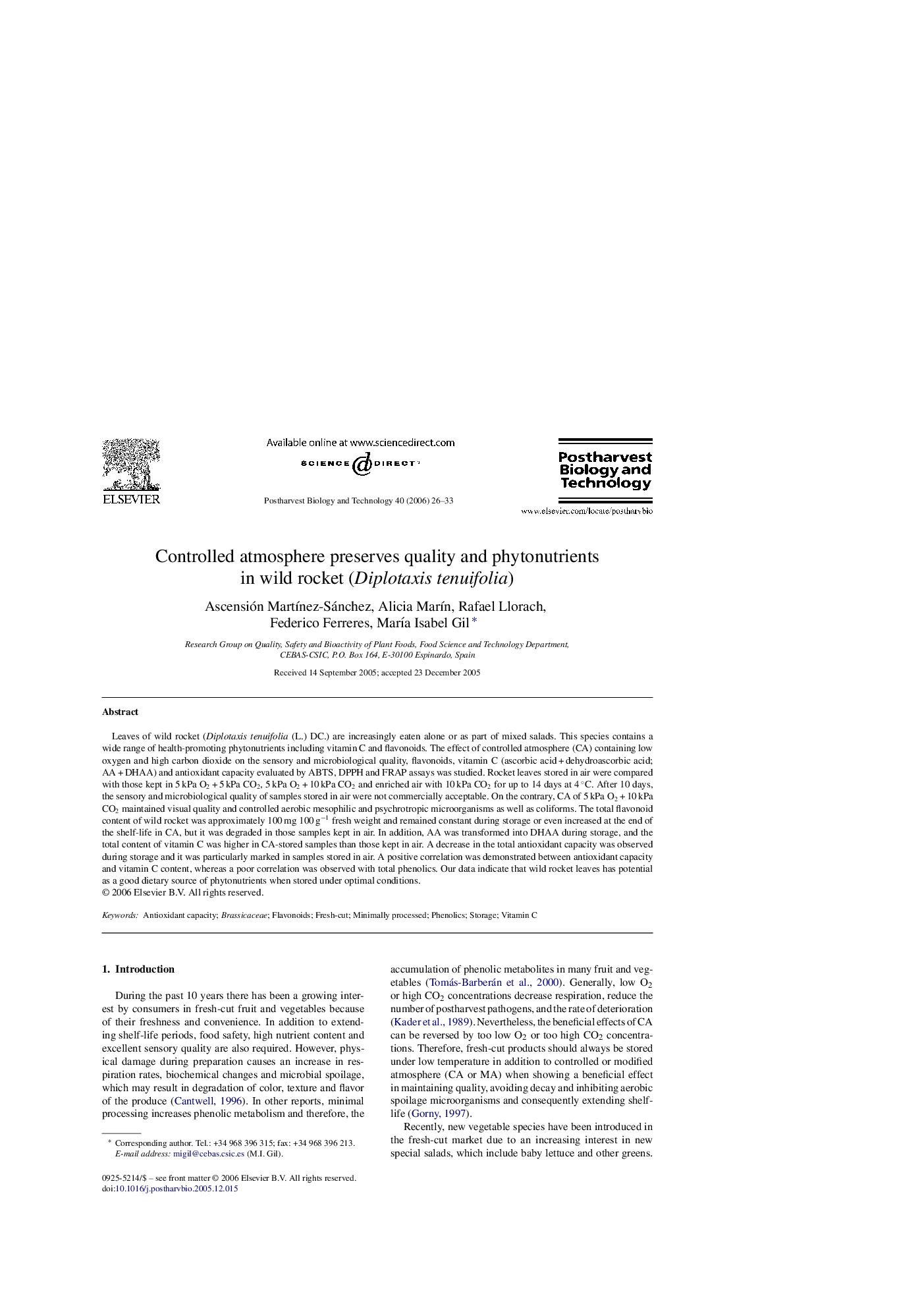| Article ID | Journal | Published Year | Pages | File Type |
|---|---|---|---|---|
| 4520013 | Postharvest Biology and Technology | 2006 | 8 Pages |
Leaves of wild rocket (Diplotaxis tenuifolia (L.) DC.) are increasingly eaten alone or as part of mixed salads. This species contains a wide range of health-promoting phytonutrients including vitamin C and flavonoids. The effect of controlled atmosphere (CA) containing low oxygen and high carbon dioxide on the sensory and microbiological quality, flavonoids, vitamin C (ascorbic acid + dehydroascorbic acid; AA + DHAA) and antioxidant capacity evaluated by ABTS, DPPH and FRAP assays was studied. Rocket leaves stored in air were compared with those kept in 5 kPa O2 + 5 kPa CO2, 5 kPa O2 + 10 kPa CO2 and enriched air with 10 kPa CO2 for up to 14 days at 4 °C. After 10 days, the sensory and microbiological quality of samples stored in air were not commercially acceptable. On the contrary, CA of 5 kPa O2 + 10 kPa CO2 maintained visual quality and controlled aerobic mesophilic and psychrotropic microorganisms as well as coliforms. The total flavonoid content of wild rocket was approximately 100 mg 100 g−1 fresh weight and remained constant during storage or even increased at the end of the shelf-life in CA, but it was degraded in those samples kept in air. In addition, AA was transformed into DHAA during storage, and the total content of vitamin C was higher in CA-stored samples than those kept in air. A decrease in the total antioxidant capacity was observed during storage and it was particularly marked in samples stored in air. A positive correlation was demonstrated between antioxidant capacity and vitamin C content, whereas a poor correlation was observed with total phenolics. Our data indicate that wild rocket leaves has potential as a good dietary source of phytonutrients when stored under optimal conditions.
